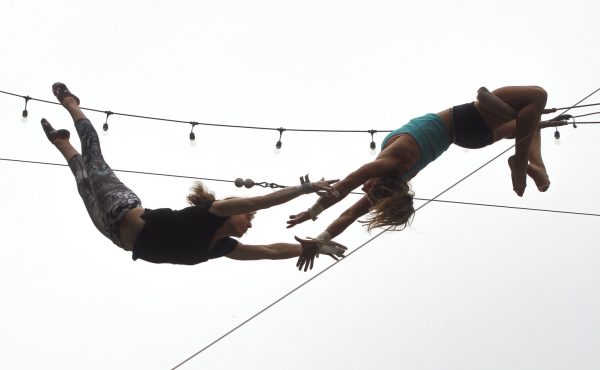Farming is one of the most concrete examples of faith. Farmers spend a great deal of money, very often going into debt to buy seed, fertilizer and equipment only to sow the seed and fertilizer into the ground. The harvest will not come for several months, and there is very little the farmer can do but wait. Jesus spoke a great deal about sowing and reaping and used it as a metaphor for understanding the spiritual life.
This delay between sowing and reaping has an important spiritual purpose. The delay in consequence allows for greater moral freedom. When the consequence of my moral or spiritual actions are immediate, I lose some of my freedom.
Take thieving as an example. I am free to steal a candy bar from a grocery store (or cheat an ignorant person or embezzle a little from work) but if the probability of being caught is high, then my freedom is curtailed. There is very little moral virtue in not stealing a candy bar while the clerk is watching you. However, if the probability of being caught is very low, perhaps almost nil, then my freedom is quite free. What I do in that moment reveals much about my moral virtue.
This is, I think, why Jesus often used sowing and reaping as a metaphor explaining the spiritual life. The outer consequences of our spiritual and moral life are often separated from our initial moral choices and actions. Therefore, the spiritual choices or effort I exert today are freely made. The act of kindness I show a stranger today will probably not be rewarded today, or maybe not at all in this life. The time I take to pray this morning may not have any noticeable effect on my day or in the lives of the people I pray for. I pray in faith, like the farmer, sowing my prayer like a seed, waiting to see what God will do. When I give to the poor or to the Church, the money (or time or labour) is sown. The money (or time or labour) is given to God. I get no immediate benefit, maybe no benefit at all in this life; but for that reason, the gift is truly a gift to God.
In our spiritual life, only seldom do we experience immediate consequences for our actions. Very, very, seldom do I pray and see an immediate physical result. Occasionally, I pray and experience an immediate inner consequence: a sense of peace or calm, or a thought that comforts or encourages me. Most often, however, prayer begins as an obedience, something I make myself do. Then, sometimes, as I pray, I slowly experience some inner consolation or comfort. But just as often, maybe more often, prayer begins, continues and ends as an obedience, with no inner sense of consolation—much less any outward, physical consequence other than my being tired and distracted.
At such times, the Fathers tell us, prayer is the most valuable. Prayer and all spiritual acts like tithing, helping at Church, caring for the sick, obeying our parents, etc. are all most valuable when we do them even though there is no immediate tangible benefit, when they are tiresome, hard, painful, and seemingly meaningless. At such moments, spiritual actions are most truly expressions of our moral freedom. At such moments we are choosing to follow Christ only for Christ’s sake. At such moments we are nothing less than Christ’s martyrs.
But that’s not all.
Just as surely as there is a time of sowing, there is a time of reaping. God changes us and touches the hearts of others through our prayers, our giving and our service to others. Seeds become trees and trees change the environment. Sowing is hard. Trees grow slowly, almost imperceptibly. It requires faith and often tears.
I sometimes think my spiritual life is a bit like the experience of a trapeze artist. Swinging blindfolded on her trapeze, she must let go and trust that her partner will be there to catch her. God is good at catching, but that’s not what worries me so much. I’m not very good at letting go. It’s always scary, but gets less so with practice.

















